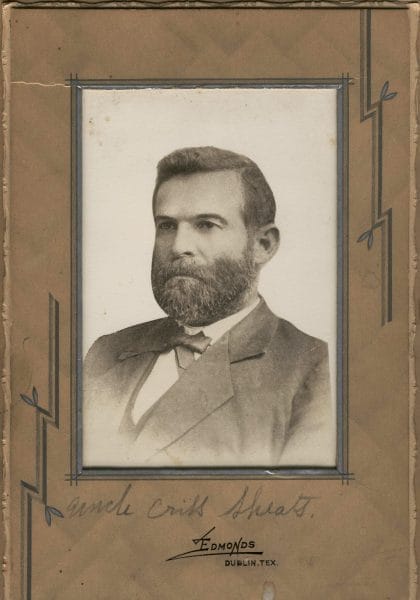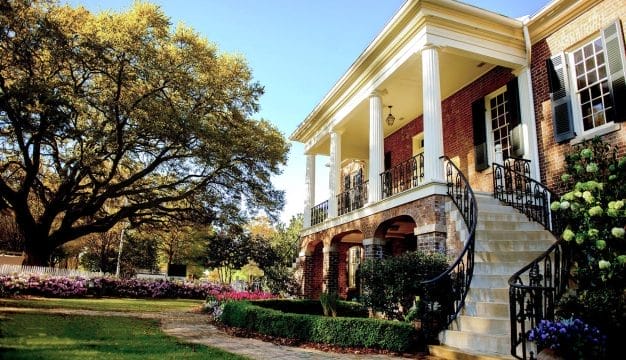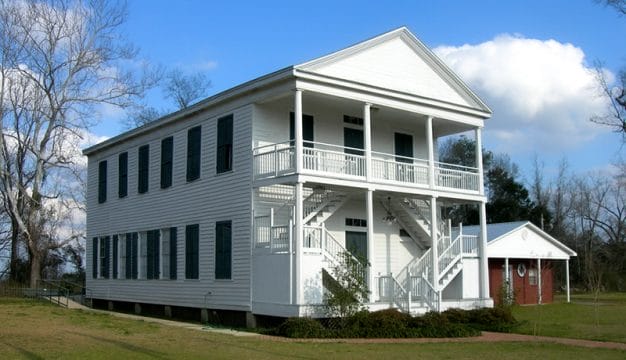Christopher Sheats
 Christopher Sheats
As Winston County’s representative to Alabama’s secession convention in January 1861, Christopher Sheats (1839–1904) ardently opposed secession and joined with others at Looney’s Tavern in Winston County to declare Winston neutral in the Civil War. He then openly supported the Union and was jailed by Confederate authorities for treason. His allegiance paid off, however, during Reconstruction. Sheats was selected to Alabama’s 1865 constitutional convention, appointed U.S. Consul to Denmark, and elected to one term in Congress.
Christopher Sheats
As Winston County’s representative to Alabama’s secession convention in January 1861, Christopher Sheats (1839–1904) ardently opposed secession and joined with others at Looney’s Tavern in Winston County to declare Winston neutral in the Civil War. He then openly supported the Union and was jailed by Confederate authorities for treason. His allegiance paid off, however, during Reconstruction. Sheats was selected to Alabama’s 1865 constitutional convention, appointed U.S. Consul to Denmark, and elected to one term in Congress.
Charles Christopher Sheats was born on April 10, 1839, in Walker County. His father was originally from Georgia, and his mother was a native of Tennessee. He attended Somerville Academy in Morgan County and then became a school teacher in northwest Alabama.
Sheats is most noted for his Unionist sentiments before and during the Civil War. On December 24, 1860, Alabama citizens went to the polls to elect their representatives to the state’s secession convention. In Winston County, the contest pitted Andrew Kaieser, a middle-aged planter and advocate of immediate secession, against Sheats, then a 21-year-old educator vehemently opposed to immediate secession. Sheats easily defeated Kaieser, 515 to 128. The elected delegates then convened in Montgomery on January 7, 1861, to debate the merits of secession.
At the ensuing convention, Sheats sided with the so-called cooperationists. They had no uniform plank, but rather held a diverse spectrum of political, economic, and social ideologies. Their views ranged from a wait-and-see approach toward newly elected president Abraham Lincoln’s policies to demanding a constitutional amendment forever protecting slavery to joint secession among all the southern states as a demonstration of southern unity. The overriding belief among all north Alabama cooperationists, however, was that the state should not immediately secede and that any ordinance of secession would have to be ratified by the state’s voters. Ultimately, the ordinance passed by a vote of 61-39. Sheats, who voted against immediate secession, also refused to sign the ordinance, even though several of his cooperationist cohorts did so. Although Sheats’s decision not to abandon the United States angered many delegates, there was little they could do to a democratically elected official.
Scant evidence exists of Sheats’s actions between the end of the Secession Convention and early July 1861. On July 4, 1861, Sheats was the principal speaker at a well-attended public forum at Looney’s Tavern in Winston County. No transcript remains of Sheats’s remarks there, but a committee, of which Sheats was most likely a member, issued a declaration stating that Winston County demanded to be left out of the war. The committee stated that the county would not support the Confederacy or the Union. It also argued that if a state had the constitutional right to secede from the United States, then a county had the right to secede from a state. Winston County soon became infamously known as the Free State of Winston County. Unfortunately, the state of Alabama refused to acknowledge the county’s declaration of neutrality; Alabama’s civic and military leaders argued that Winston County’s actions were unconstitutional.
In 1861, Winston citizens elected Sheats to the state legislature, but he would not attend the legislative session because all representatives had to swear an oath to support the Confederacy. As the war proceeded, he continued to be an ardent supporter of the Union, although such outspokenness increasingly caused consternation among state leaders and neighbors. Finally, Sheats fled his home and took refuge in the mountains of north Alabama, as did a large number of Unionists trying to evade conscription into the Confederate Army. In July 1862, Union soldiers led by Col. Abel Streight came across Sheats while recruiting Unionists in the mountains. Sheats gave a speech to the Union soldiers and his fellow Unionists stating that he would enlist and join the Union Army. Sheats never got the chance to enlist. Shortly after Union soldiers moved out of north Alabama, he was arrested by Confederates for making treasonous comments, such as urging Alabamians to enlist in the Union Army. His arrest prompted state legislators, by a vote of 69–4, to expel him from the legislature. Sheats stayed in Confederate custody for several months and at one point was sent to a prison in Salisbury, North Carolina. He was eventually returned to Madison County before being released. Sheats was rearrested in mid-1863 for stating that Alabama should seek peace and surrender to the Union. He remained a political prisoner until the Confederacy surrendered.
Winston County and national Republicans rewarded Sheats for his loyalty to the Union. In September 1865, local citizens elected him to Alabama’s constitutional convention, and he was asked to serve as a Republican elector in 1868 and 1872 when Ulysses S. Grant won the presidency. Sheats was further rewarded with an appointment as U.S. Consul to Denmark. He returned to Alabama in the early 1870s and was elected to the 43rd Congress in 1873; his tenure was unexceptional.
After his stint in Congress, Sheats was appointed Appraiser of Merchandise for the Port of Mobile and Alabama’s Assistant Collector of Internal Revenue, as well as to other minor offices. These political prizes lasted until Grover Cleveland, a Democrat, was elected president in 1884. Sheats did not wed until well into adulthood; on January 27, 1887, he married the much younger Mary Anderson. Sheats died on May 27, 1904, in Decatur and was buried at nearby McKendree Cemetery.
Additional Resources
Heritage of Winston County. Clanton, Ala.: Heritage Publishing Consultants, 1998.
McMillan, Malcolm C. The Alabama Confederate Reader. Tuscaloosa: University of Alabama Press, 1963.
Rice, Charles. Hard Times: The Civil War in Huntsville and North Alabama, 1861-1865. Boaz, Ala.: Boaz Printing, 1994.



